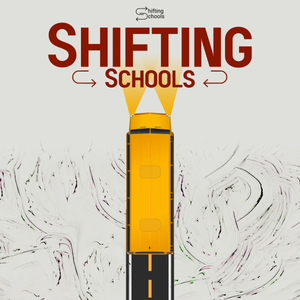
Scroungers versus Strivers: the myth of the welfare state
03/02/21 • 19 min
1 Listener
Previous Episode

Should we be optimistic?
Contributor(s): Dr Tali Sharot, Dr Joan Costa-Font, Professor David de Meza, Dr Chris Kutarna | Despite our growing collective pessimism about the state of the world, when it comes to our own lives, research suggests we are generally optimistic. After a year that will remain synonymous with anxiety, isolation, endless devastating news reports, and for too many – loss, this episode of LSE IQ asks: is optimism is good for us? And, beyond the effects on our wellbeing, is optimism an accurate lens through which to view the world? Addressing these issues are: Dr Tali Sharot, Professor of Cognitive Neuroscience at UCL; Dr Joan Costa-Font, Associate Professor in Health Economics at LSE; Dr David de Meza, Professor of Management at LSE; and Dr Chris Kutarna, author of Age of Discovery: Navigating the Risks and Rewards of our New Renaissance. Contributors Dr Tali Sharot Dr Joan Costa-Font Professor David de Meza Dr Chris Kutarna Research The Optimism Bias: Why we're wired to look on the bright side by Tali Sharot. Neither an Optimist Nor a Pessimist Be: Mistaken Expectations Lower Well-Being by David de Meza and Chris Dawson in the Personality and Social Psychology Bulletin. Why optimism and entrepreneurship are not always a good mix for business by David de Meza and Chris Dawson in The Conversation. Optimism and the perceptions of new risks by Elias Mossialos, Caroline Rudisdill and Joan Costa-Font in the Journal of Risk Research. Explaining optimistic old age disability and longevity expectations by Joan Costa-Font and Montserrat Costa-Font in Social Indicators Research. Does optimism help us during a pandemic? by Joan Costa-Font. Age of Discovery: Navigating the Risks and Rewards of Our New Renaissance by Chris Kutarna and Ian Goldin.
Next Episode

Do algorithms have too much power?
Contributor(s): Ken Benoit, Andrew Murray, Seeta Peña Gangaradhan, Alison Powell, Bernhard Von Stengel | Computer algorithms shape our lives and increasingly control our future. They have crept into virtually every aspect of modern life and are making life-changing choices on our behalf, often without us realising. But how much power should we give to them and have we let things go too far? Joanna Bale talks to Ken Benoit, Andrew Murray, Seeta Peña Gangaradhan, Alison Powell and Bernhard Von Stengel. Research links: Hello World by Hannah Fry; Information Technology Law: The Law and Society by Andrew Murray; Explanations as Governance? Investigating practices of explanation in algorithmic system design by Alison Powell (forthcoming).
If you like this episode you’ll love
Episode Comments
Generate a badge
Get a badge for your website that links back to this episode
<a href="https://goodpods.com/podcasts/lse-iq-podcast-60583/scroungers-versus-strivers-the-myth-of-the-welfare-state-12011856"> <img src="https://storage.googleapis.com/goodpods-images-bucket/badges/generic-badge-1.svg" alt="listen to scroungers versus strivers: the myth of the welfare state on goodpods" style="width: 225px" /> </a>
Copy




